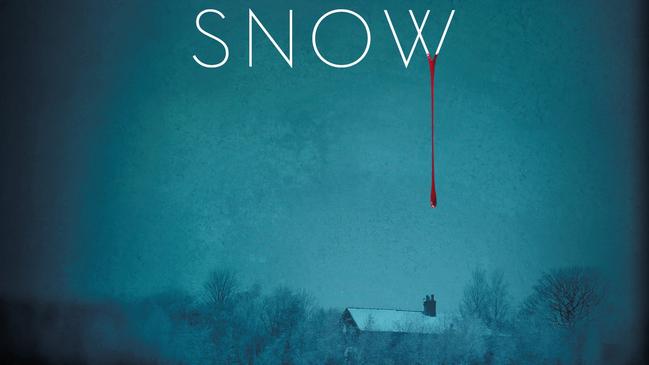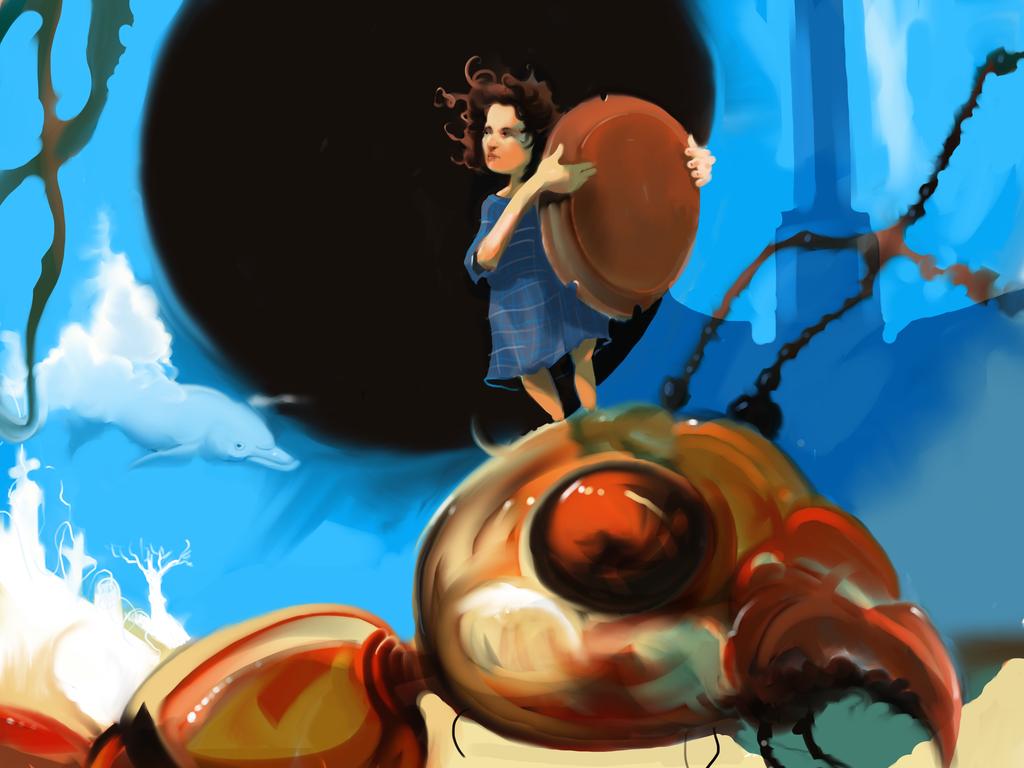Christie meets Cluedo in John Banville’s new crime thriller
Irish novelist John Banville has fun making his new book, Snow, feel like a game of Cluedo or an Agatha Christie whodunnit.

“Yes, he thought, yes, that was what had been nagging at him, from the moment he had first arrived at Ballyglass House. Everyone seemed to be in costume, seemed to be dressed for a part. They were like a cast of actors milling about in the wings, waiting to go on.” That’s Detective Inspector Strafford, the main character in John Banville’s new crime thriller Snow (Faber, 336pp, $29.99).
He is 35, single, has no close family or friends and his first name is St John, pronounced Sinjun, which identifies one of the difficulties he faces in rural southeast Ireland in the winter of 1957. He is from an upper class background. He knows that, behind his back, his underlings call him “Lord Snooty”.
The other challenge is that he is a Protestant investigating the murder of a Catholic priest in a “great, gaunt” Protestant mansion, the aforementioned Ballyglass House. As the forensic investigator, Harry Hall, notes, “This is a weird one. A dead priest in a houseful of Prods? What are the papers going to say?”
The priest, Father Tom Lawless, is not only dead from stab wounds but his penis and testicles — “the whole shebang” — have been removed. What the papers will say about that depends on the influence of the church. As Strafford’s boss, Chief Superintendent Hackett, tells him, if the Archbishop of Dublin says the man of the cloth stabbed himself in the neck by accident, fell down a staircase and then cut off his own genitalia, “then that’s what happened, so far as the public at large would be permitted to know”.
Father Lawless was a regular guest at Ballyglass House, the “tame priest”, as one character puts it. The head of the house is the bristly Colonel Osborne, a hero at Dunkirk. His second wife, Sylvia, is much younger and looks ethereally unwell. We learn what happened to the first Mrs Osborne. Her and the colonel’s two children, the handsome medical student Dominic and the unconventional 18-year-old daughter Lettie, become important.
This is the main cast of characters that Strafford is thinking of, but it doesn’t end there. Banville introduces lots of other colourful sorts, some related to the main players, such as Sylvia’s black sheep brother Freddie Harbison, and others who live and work in Wexford, where the Booker Prize-winning author was born. When we read it’s so cold that summer is “unimaginable”, we know Banville is speaking from experience.
It’s Strafford’s job to decode these odd personalities, find out what they are hiding and work out who killed the priest. It’s a tricky case. For starters, the house was not broken into. That should narrow the field of suspects for the murder, committed between 3am and 4am, to the Osbornes and their housekeeper, Mrs Duffy … except we know crime writers love leading readers up the garden path. There are other ways to enter a house.
Strafford muses: “ ... it’s funny, but either no one at Ballyglass House had a motive for killing the priest, or everyone had.” He works out what has been niggling at him since he arrived: “No one was crying.” He soon meets hulking local lad Alphonsus, called Fonsey, a “feral boy” who lives in a caravan in the woods. He looks at Fonsey’s huge hands, bloodstained from butchering a rabbit, and wonders what else they could do. Then he thinks: “But hands are only hands. Would Fonsey have it in him to murder a priest?”
It’s interesting that Banville has published this crime novel under his own name, following the seven-book Quirke series written under the pen name Benjamin Black. In a nice touch, Dr Quirke, the 1950s Dublin pathologist from the books (and subsequent BBC series starring Gabriel Byrne), is mentioned early on. He’s on his honeymoon, Strafford is informed, so is unable to perform the autopsy on Father Lawless.
There is a lot of humour in the opening pages. Banville has fun making it feel like a game of Cluedo or an Agatha Christie whodunnit. The priest’s body is found on the floor of the library owned by a colonel and there is a candlestick to hand. ‘‘Jesus Christ, will you look at the place,” Hall says as he takes in the crime scene. “Next thing Poirot himself will appear …” There’s a rude doctor, of course, who treats Sylvia for her undescribed condition.
The characters hover on the edge of caricature, but never tip over. Here is Colonel Osborne at luncheon with Strafford and his offsider, Detective Sergeant Ambie Jenkins. He’s being asked questions by Strafford, which he reluctantly accepts, but he is irked to have Jenkins, a man from the “other ranks” at his dining table.
“Osborne, chewing on a gristly knob of kidney, looked at [Strafford] with raised eyebrows. He swallowed the piece of meat more or less whole. ‘Do we have to go into all that at the table?’ ’’
As I read Snow, I thought of Graham Greene’s early decision to describe some of his novels as “entertainments” to distinguish them from the ones he considered more literary. He stopped doing that after a while and called them all novels. Like Greene, Banville can be entertaining and serious at the same time, in the same space. As this new novel draws to its climax and we learn more about Father Lawless, there is nothing funny about what happens.
-
A Pair of Ragged Claws, October 17, 2020
Clive James never wrote me a poem. I suspect I was the wrong gender. I say that lightheartedly, and in the knowledge that James is dead so he can’t sue. I think he takes a similar attitude in his delightful posthumous book The Fire of Joy: Roughly Eighty Poems to Get by Heart and Say Aloud (Picador, 310pp, $34.99).
He wrote this book knowing he was free to speak his mind. “For me poetry means freedom,’’ he writes in the introduction. “Even today ... when the ruins of my very body are the prison, poetry is my way through the wire and out into the world.”
So it is that in this loving critique of 80-odd poems that “are the milestones marking the journey of my life”, James can mention that Elizabeth Bishop was a “drinker on an epic scale”. That, however, is small beer alongside his assessment of her close friend and fellow poet friend Robert Lowell. “She was morally a towering genius compared to Lowell, but then so am I, and so was Scrooge McDuck”. He does include a poem from each in the collection: Bishop’s Sandpiper and Lowell’s Will Not Come Back.
When it comes to Ezra Pound (chosen for the two-line In a Station of the Metro), James admits his early enthusiasm for the poet “underestimated ... that he was a foaming head case”.
This is a well-produced book. Each poem is printed, followed by James’s thoughts on it, usually a page or two in length. There is a list of contents at the start, so readers who want to know if TS Eliot is there, as I did, can check. There is an index of first lines at the end of the book.
The idea is that these are poems that can be memorised and read aloud. The title comes from the French expression feu de joie, in which the riflemen in a regiment, on ceremonial occasions, fire one shot after another to make a continuous noise. “Noise, I believe, is the first and last thing that poetry is,’’ James writes. “If a poem doesn’t sound compelling, it won’t continue to exist.” With this in mind, I read quite a few of the poems aloud. James is right. The one that struck me most was Shakespeare’s Sonnet 129. Reading it out, pausing at the right time, I understood what it was about. Passion (I think).
Eliot is included for La Figlia Che Piange, which James well describes as a few lines of “deliberate vagueness” that lead to “a clinching line of killing specificity”. He also mentions that his dear, now-departed friend from university days, Robert Hughes, could recite Eliot’s Four Quartets from memory.
The chapter on Sylvia Plath and her 1962 poem Cut is a highlight. What a poem. Who else can turn a cut thumb in the kitchen into “A celebration, this is. / Out of a gap / A million soldiers run, / Redcoats, every one. // Whose side are they on?”
James does include one of Ted Hughes’s best-known poems, Pike (1969), but notes that it does not approach Cut. “Basically it was the story of a fight between a tiny fish and a huge man, whereas Plath’s poem had a world war in it. ...The paradox presented by the couple was that Plath was the giant. Although the towering Hughes raided the whole of history and all cultures for his ideas, she was the one with the poetic scope.”
The poems are listed in near-chronological order. The anonymous Western Wind is the opener and Thomas Wyatt is next with They Flee From Me from 1535. Most of the names are there: the Johns Donne, Milton, Keats, Masefield and Berryman (the last for Dream Song 4, on which James is hilarious), Robert Burns, Samuel Taylor Coleridge, both the Brownings, the Lords Byron and Tennyson, Percy Shelley, WB Yeats, Christina Rossetti, Emily Dickinson, WH Auden, Dorothy Parker, Dylan Thomas, Robert Frost, Seamus Heaney and many more.
One of the final poems is Mrs Midas (1999), by the former poet laureate Carol Ann Duffy. I did not know this poem and it is stunning. “ ... You see, we were / passionate then, / in those halcyon days; unwrapping each other, rapidly, / like presents, fast food. But now I feared his honeyed embrace, / the kiss that would turn my lips to a work of art.” As James puts it, “there’s something astonishing happening every couple of lines”.
Only two Australian poets make the list: Peter Porter for John Marston Advises Anger and, in a late, non-chronological move, Stephen Edgar for his 2008 poem The Red Sea. James finishes with Edgar, his former classmate at Sydney Technical High School, “who might soon have to bear alone the burden of being known as [the school’s] most prominent poetic alumnus.”
I want to finish with Philip Larkin’s An Arundel Tomb. It explores, as James says, the difference between “the personal and the eternal”. It is beautiful and haunting and ends with this: “Time has transfigured them into / Untruth. The stone fidelity / They hardly meant has come to be / Their final blazon, and to prove / our almost-instinct almost true: / What will survive of us is love.”
-
A Pair of Ragged Claws, October 10, 2020
Apparently James Dean’s favourite books were Antoine de Saint-Exupery’s The Little Prince, The Complete Poetical Works of James Whitcomb Riley (there are good online photographs of him reading that one, cigarette in hand) and The Authentic Life of Billy the Kid, by Pat Garrett, the lawman who shot dead the outlaw in New Mexico in 1881.
Billy the Kid, birth name Henry McCarty, was 21 when he died. Dean was 24 when he and his Porsche came to grief in 1955. He’d starred in three movies — East of Eden, Rebel Without a Cause and Giant — but not the one he was keen to make. While there had been films about the Kid from 1911 onwards, the one Dean had in his sights was Arthur Penn’s The Left-Handed Gun. With Dean dead, Paul Newman took the role and the film came out in 1958.
I mention this as a lead into Sue Butler’s new book, Rebel Without a Clause. Losing the Linguistic Plot ... (Macmillan, 254pp, $24.95 hardback). Note the unusual, for a book title, full-stop. This is the former editor of the Macquarie Dictionary we are dealing with.
The intriguing part of this collection of linguistic dos and dont’s, however, is that there are more dos than I expected. Butler is writing not as a lexicographer but as a word lover who accepts that the language she cares about it is not set in stone.
“Language is always changing,’’ she writes, “so it is not possible to have rigid rules.” She adds that some “rigid rules have turned out to be just silly” and cites the split infinitive. She thinks if a sentence is clear, that’s good enough. She does offer a few unacceptables, such as the misuse of “fulsome” to mean copious rather than insincere, the pronunciation of “pronunciation” as “pronounciation” and the overuse of “closure”, a word that has “escaped from the couch and become the banal mantra of pop psychology”.
Yet reading through this entertaining book I did wonder whether Butler was more tolerant than I am, or whether she had decided to go with the flow and accept certain abuses. The use of “literally” as an emphasis marker “still troubles me”, she admits, “but I think we have to give up on it”. That disappoints me, literally. She also accepts that “uninterested” and “disinterested’’ are interchangeable, a view in which I am not disinterested.
On punctuation, she thinks the apostrophe should be axed. “Really, nothing would be lost.” She argues that the context of a sentence will sort out whether it’s “its” or “it’s”. She has a point but, as she acknowledges, contractions such as “he’ll” may cause some “anxiety” sans apostrophe. Indeed. I think there is a possible shift of emphasis in this sentence — “Hell hell have to” — depending on which word the apostrophe has deserted.
Butler writes in short, sharp, playful chapters. Considering the plural of words that end in “us”, such as platypus, she has fun reminding us that a true pedant would insist not on platypi but platypodes, as the Romans borrowed the word from the Greeks. She prefers platypuses. “The English language should play by English language rules. We should forget all this ridiculous straining after languages of origin.” Speaking of animals there’s an interesting chapter on attempts to revise phrases such as “flogging a dead horse’’ to remove the animal cruelty. As she notes, though, proffered replacements such as “feeding a fed horse’’ don’t quite work.
She accepts neologisms from the yoof, and I am cool with that. (“Cool”, she notes, is a word with “amazing longevity”.) “As we get older, we can find ourselves astonished and sometimes outraged by the new expressions being taken by the younger generation, forgetting that when we were young, we shocked our parents by flaunting such items as amazeballs and awesomesauce.
This is a well-indexed book so if you want to know what Butler thinks of the confusion between “flaunting’’ and “flouting”, you can find out. She does not, however, mention the one that drives me craziest: the use of backflip to mean U-turn.
The Premier has backflipped, the NBN backflip and so on. Unless I am missing something, a successful backflip leaves the backflipper facing in the same direction, not the opposite direction. I am running a photograph of one above.
The final, titular chapter is fun for a journalist to read. Butler quotes a news report about two men trying to break into a house and the household staffordshire terrier is trying to stop them.
This is how the incident was reported: “Once inside, the dog bit the man on his leg, prompting his accomplice to fire the gun at the dog, taking off a substantial part of its ear.” What naughty dogs! They break into a house and shoot guns at each other.
-
A Pair of Ragged Claws, September 26, 2020
Trent Dalton’s 2018 debut novel, Boy Swallows Universe, has just passed 500,000 copies in sales. This is tremendous for the Brisbane-based author, a colleague on this newspaper, but it also puts enormous pressure on his next book. Well, in my opinion, not only has Dalton overcome the dreaded second-novel syndrome, he has smashed it out of the park in the manner of, to adapt a cricket jingle I know he’ll appreciate, “Hooksey clearing pickets”.
I’ll put this upfront:I think All Our Shimmering Sk ies (4th Estate, 448pp, $32.99) is even better than Boy Swallows Universe. We are running an extract here today and the novel will be reviewed in full by Geordie Williamson in coming weeks.

Dalton has resisted the temptation to follow a successful debut with a sequel. Boy Swallows Universe is a semi-autobiographical coming-of-age novel set in the seedier side of 1980s Brisbane where the author grew up. All Our Shimmering Skies is different in terms of setting, characters, themes and technique. It is largely set in Darwin and environs during World War II. The description of the Japanese bombing of that city and its aftermath is haunting.
The main characters are Molly Hook, seven at the start, almost 13 at the end, and actress Greta Maze, who is 33 when we first meet her, blonde, green-eyed, standing on a truck tray and quoting from Macbeth. As the extract suggests, Molly’s mother leaves her at the outset. She is now in the hands of her father, Horace Hook, and his older brother, Aubrey Hook, who looks like a vaudeville villain, though his character is more complex than that. There’s a whiff of southern gothic here, with Molly reminding me of Scout Finch from Harper Lee’s 1960 novel To Kill A Mockingbird.
The Hooks are gravediggers by trade, and Molly and her “best friend” Bert the shovel are part of the family business. As she walks through the cemetery, looking at the headstones and the flowers on the graves, Molly thinks, “So much love inside a cemetery. So much loss, but so much love.” That is beautiful. There’s a curse on the Hooks, imposed by an Indigenous man known as Longcoat Bob because he wears a Napoleonic overcoat. He laid down the curse after Molly’s poetic, prospecting maternal grandfather, Tom Berry, took gold from a place he shouldn’t have.
Molly and Greta (and Bert, importantly) go on an outback odyssey to track down Longcoat Bob and ask him to lift the curse. Tall, thin, dark-toothed Aubrey goes after them, no doubt twiddling his black moustache. Molly’s mother tells her to keep her eyes on the sky because she will be sending down “sky gifts”. There’s a humorous reference to Bing Crosby singing Pennies From Heaven. Molly talks to the sky and the sky talks back.
The sky does deliver, yet whether what arrives are gifts is a matter of judgment. Are the bombs raining from Japanese planes gifts? Well, the Hook brothers do see a potential boom in business. Is Japanese fighter pilot Yukio Miki, who parachutes into the outback and meets up with Molly and Greta, a gift? Armed with his family sword, he is a fascinating character, and it is good to see the war story told partly through a Japanese perspective.
This novel is highly imaginative and deeply researched. Dalton has swapped his own life for the lives of people he cannot have known and his own back yard for a place and time he cannot have experienced. The language is elegant, the dialogue is true and there are times when the author lets loose his comic side.
This is a novel with female friendship at its centre. When Molly, thinking about her uncle, asks “How do you love someone and hate them at the same time?”, Greta replies: “You’ll understand when you find a man of your own.” We learn more about Greta and Aubrey later. Early in their journey, Molly and Greta are charged at by buffaloes and then confronted by crocodiles in a creek. Molly believes Longcoat Bob has sent the beasts as a warning. Greta counters that the buffaloes ran because they were scared. “That’s the natural response, you see, Molly, when you’re scared of something, like, oh, I don’t know, say, seeing three adult crocodiles halfway up black arse Candlelight f..king Creek!”
There are superb set pieces, such as Swiftean scene when Molly and Greta are trapped in a tin mine run by men who appear to have leprosy. With moments such as this, and with Molly and the talking sky, the author pulls off a daring move into magical realism. It was Peter Carey who said Gabriel Garcia Marquez threw open the door he and other writers had been “feebly scratching on”. I know Dalton, who is so modest, would say he isn’t worthy to shine Marquez’s shoes, or Carey’s for that matter, but this novel puts him on the literary A-list, whether he agrees or not.
Booker Prize winner Richard Flanagan is about to release his new novel, The Living Sea of Waking Dreams. Soon after we will see new books by Alex Miller and Sofie Laguna, who have three Miles Franklins between them, and Craig Silvey. So Dalton is in the deep end now. I don’t think we need to alert the lifeguards. For this reader, the most important line in All Our Shimmering Skies comes from Longcoat Bob: “Carry all you own … But own all you carry.” It means face the truth of who you are, and it’s my advice to the author: own it, carry it. Readers will thank you for doing so.






To join the conversation, please log in. Don't have an account? Register
Join the conversation, you are commenting as Logout